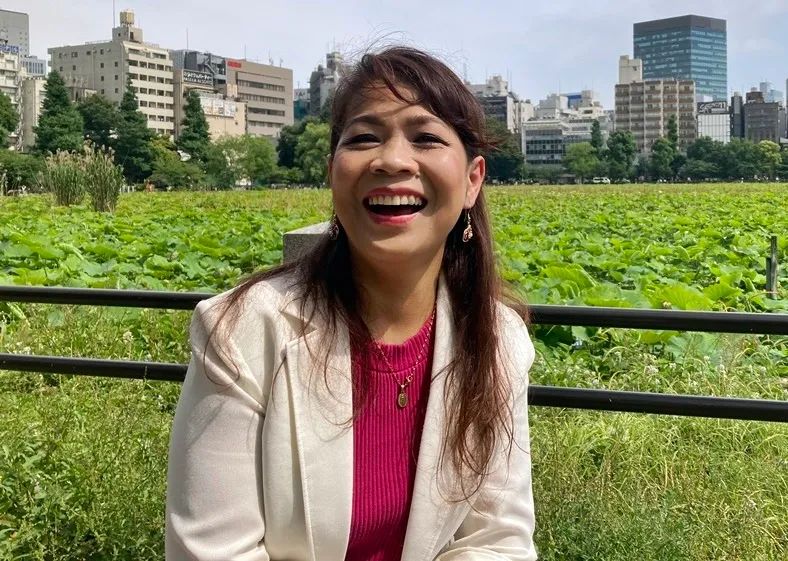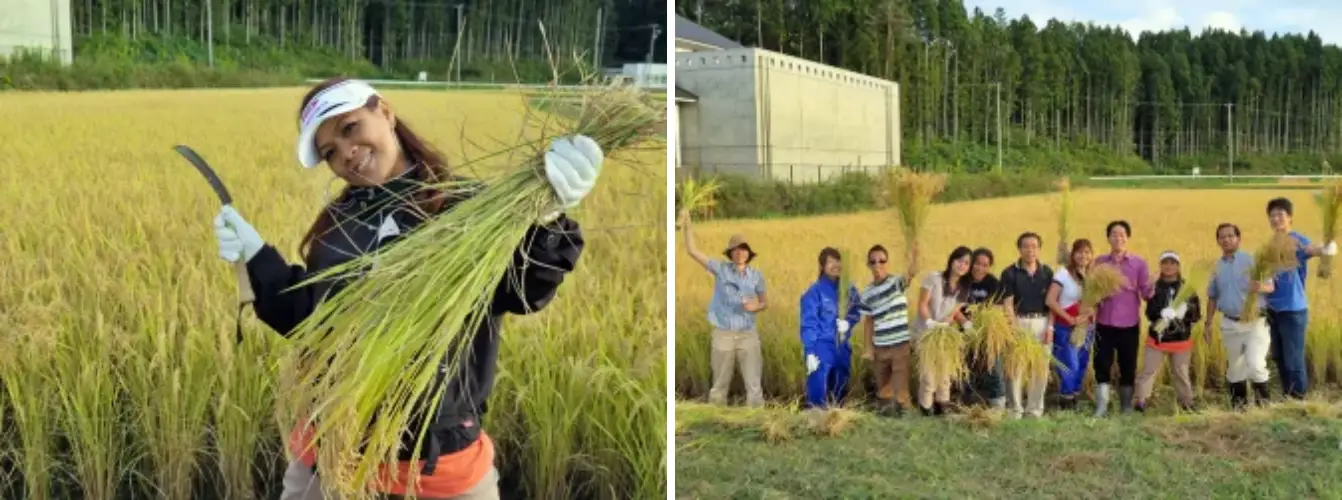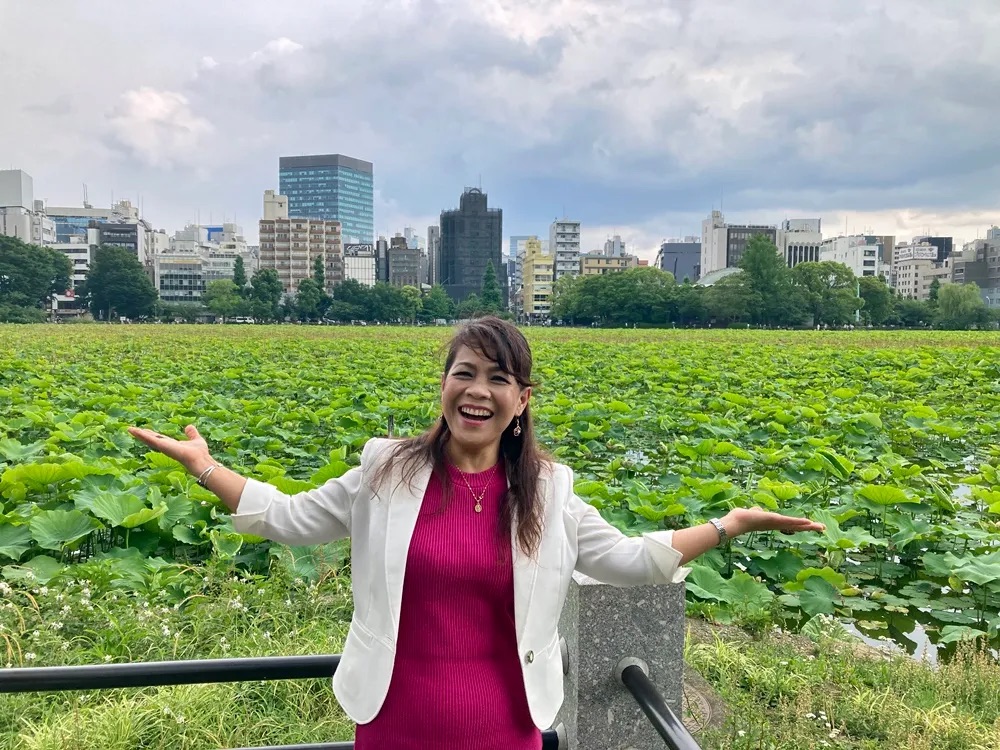The following article is by My Eyes Tokyo, which collaborates with Global Peace Foundation Japan on the Multicultural One Family Project. The project strives to bridge people of many different backgrounds in Japan’s increasingly diverse society. More than 2.8 million foreigners reside in Japan.
Interview by Isao Tokuhashi (My Eyes Tokyo)
Written by Jennifer A. Hoff (My Eyes Tokyo)
Japan is filled with a wide variety of music, including J-pop, K-pop, Western music, world music, and so on. All of these are popular among people of all ages, but we must not forget the type of music that has moved the hearts of Japanese people for ages past. That would be “enka” (演歌).
Enka, which has been popular since pre-war times, has been regarded as “that which sings the heart of Japan.” Since the 1980s, however, it has also been sung by singers from abroad. Long before Korean pop culture became popular in Japan, Korean singers had always enjoyed great popularity singing it here in Japan. Finally, in the 2000s, an enka singer from the U.S. debuted and became a big hit.
Today, we would like to introduce you to Yolanda Tasico, the first Filipino enka singer in Japan. The majority of enka songs are created and made to be sung set in cold regions such as in the northeastern part of Japan, but we have finally entered an era in which a singer from a country with everlasting summer is now singing enka too.

Yolanda Tasico
We were charmed by Yolanda’s cheerful personality and her midsummer sun-like smile that only a native to a tropical country could bring, and we thoroughly enjoyed a talk that was full of laughter even under the rainy sky in front of Ueno Tokyo’s Shinobazu Pond.
Chasing a rare opportunity through tears
I sing every day to become a singer like Hibari Misora, a singer whose unique low voice has attracted people from all over Japan. I feel proud when people hear my tagline, “the first Filipino enka singer,” and are surprised to see me but end up loving me. Not only am I able to heal the hearts of people who listen to my songs, but I myself am also healed by singing. That is why singing is like medicine for me.
I’ve been living in Japan for almost 30 years now. But my first visit to Japan was even earlier, in 1985. I was still in my teens at the time, and when I learned in the Philippines that there was an audition being held for performing in shows held on stages at hot spring resorts (onsen) in Japan, I thought that it would be a big opportunity for me.
I’ve loved singing since I was a child, participating in music events as a representative of my school and winning many singing contests that were broadcast on TV. I began to feel that becoming a professional singer was not just a far-off dream, and I had come to strongly desire to earn money to help send my four younger sisters to college. Singing in Japan would allow me to achieve all of these goals at once—I was so excited.
On the other hand, I was not completely free of hesitation. I had heard from my grandparents that Japan had occupied the Philippines in the past, and I had seen the “scary people,” that were the yakuza and samurai, on the news and in dramas on TV. But I knew that not all Japanese people were like that, and the hope that I could earn money by my beloved singing was what pushed me to do it more than anything else. Moreover, my mother supported me so much that she accompanied me to the audition. Fortunately, I passed it and signed off on my first performance contract for working in Japan. But at the same time, it meant, “No matter what happens to me, I can’t go back to my home country for six months.”
After I first landed, I headed over to Naruko Onsen in Miyagi Prefecture with the other performers. I cried every night for the first month out of loneliness for not being able to see my beloved family and from the anxiety of not understanding the language being spoken around me at all.
I performed a variety of styles of music on stage at the onsen, including jazz, pop, soul, and the traditional Japanese enka. Singing soothed my sadness, and I eventually became accustomed to life in Japan when I started to get closer to a dancer who had already been to Japan many times and taught me some basic Japanese. Also, good food saved my life (laughs).
Setting down the mic to become a “shufu” (housewife)
My routine of auditioning and going to Japan, then returning to the Philippines after six months of shows, continued for the next six years. I remember that during my several visits to Japan, the enka song “Kawa no Nagare no Yō Ni” (“Like the Flow of the River”), which was Hibari Misora’s last song, was a huge hit.
Although I didn’t receive that much compensation for my singing, I was able to send most of it to my family, thanks to the show producers who paid for my rent and utilities.
Then one day, I met a Japanese hotel worker while I was staying at Kawaji Onsen in Tochigi Prefecture. He was in charge of serving meals to guests, and we shared an elevator almost every day. Eventually, we exchanged phone numbers.
Soon after, I married him and took a break from my singing career to become a homemaker. No one asked me to do that; it was what I wanted to do. To me, family is the most important thing in life—and I wanted to live happily with family.
By having a child, I thought that I would be able to fulfill my modest dreams with my husband. However, we gradually began to see differences in our values, and I felt happiness slipping away from us. Eventually, after about five years, our marriage came to an end.
But I did not return home. My child was just beginning elementary school, and I wanted to raise him in Japan, where there were people who had given me a chance to become a singer and who have been continually supporting me even after I realized my dream.
An enka singer seizing her happiness
After my divorce, my passion for singing became unstoppable again, and I actively participated in more karaoke competitions. At one competition, one of the judges, the enka singer Taro Kinugawa, told me that my voice would suit enka the best. I had been singing mainly pop songs until then, but his words led me to step into yet another unknown world. It was at that moment that I became the first Filipino enka singer.
Mr. Kinugawa taught me everything I needed to know as an enka singer. One of his most memorable phrases was, “Enka is sung from the heart.” Until then, I had been singing Japanese songs at shows and karaoke competitions, but at the time, I just sang without really thinking much about the meaning of the words. Mr. Kinugawa taught me how important it is to grasp the lyrics’ meaning and sing using the appropriate emotion.
On the other hand, I am still from the Philippines, so I always give a hug, whether it’s to a man or a woman around, when I get into the mood during a show. I always hug people I care about, whether they are Filipino or Japanese. That’s me, Yolanda (laugh).
I really love interacting with the elderly people who have become my fans because I feel as if I am talking to my father and mother. I often sing to them in the countryside and at nursing homes, and they listen to my songs with tears in their eyes, hugging me with joy afterward. They shake my hand, never letting go. They give me gifts: pickles, fruits, and vegetables—and I feel their heartfelt love.

Rice paddies restored after 2011 tsunami: Volunteers host “Inekari (Rice Harvesting) Cup”
After becoming an enka singer, I had another special encounter. I happened to meet the representative of an international peace organization called the Global Peace Foundation Japan, which led me to a disaster-stricken area. Through attending their meetings and singing at their events, I was given the opportunity to visit Kesennuma in Miyagi Prefecture, one of the places that were severely damaged by the Tōhoku earthquake and tsunami in 2011. I felt a strong connection with the city because, as you will recall, my first visit to Japan was to Miyagi Prefecture, singing at the Naruko Onsen there.
In Kesennuma, I had the opportunity to experience rice planting and harvesting. I was served delicious onigiri rice balls made from the rice that had been harvested, which made me feel as if I had returned to my hometown. I also had the chance to talk with Seietsu Sato, a former firefighter who had tragically lost his wife in the disaster in Kesennuma, and I felt a deep heart-to-heart connection with him.
Having received so much love from the people of Japan, I now feel true happiness not only as a singer but also as a human being.

What is Japan to you?
It’s a place where I feel at home.
People in Japan are kind and have very good manners. Those manners are now ingrained in me. So even back home in the Philippines, I bow and say “Arigato (thank you)” in Japanese when I pay at a restaurant or supermarket. Cashiers give me a funny look, though (laughs).
Although I’ve been living in Japan for a very long time, my life in Japan began with a complete lack of understanding of the language. I couldn’t buy anything because I couldn’t speak or read. I couldn’t make friends, I couldn’t express my feelings, and I was worried if I would be able to get to the places I wanted to go because I couldn’t read any of the signs. But as the lyrics of the song I wrote, “ARIGATO,” go, my eyes brightened up at once after I learned the language.
I’m incredibly grateful to everybody, and for being able to be here in Japan, so I have nothing to really say about it in the form of criticism. But if I had to name one thing that is missing in Japan, which we strongly believe in in the Philippines, it would be the value of “family relationships.”
In the Philippines, family is very important and dear to us. But in Japan, I feel that families tend to fall apart as people grow older. If more people cherished their family more, I am sure Japan would be an even better place!
Japan is the place where I started my professional career and grew as a singer. It is the place that supported me in becoming the first Filipino enka singer. I am very happy just to be in this amazing country.
